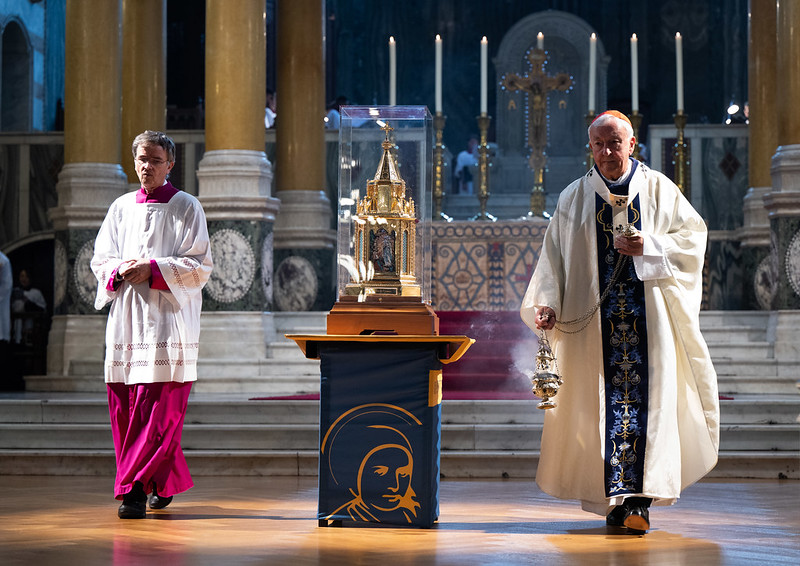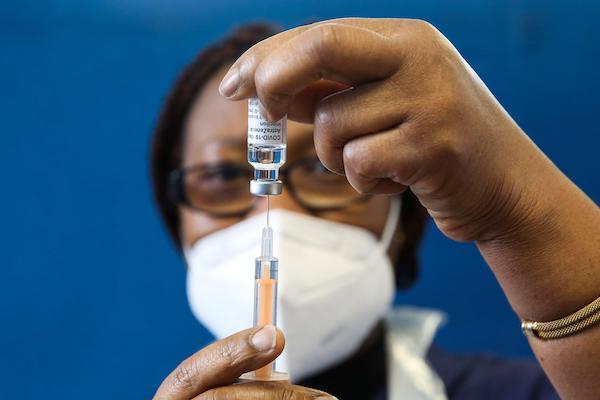An employment judge has ruled that a Catholic care worker who was sacked for refusing a Covid vaccine can argue that her refusal was on religious grounds.
In a preliminary hearing to an employment tribunal, employment judge Eoin Fowell found that Patrycja Wierowska, who was dismissed from her job in April 2021, had refused the vaccine for reasons “intimately connected with her religious faith”. This means she is entitled to rely on her religion as a protected characteristic under the Equality Act in the forthcoming tribunal.
Prof David Albert Jones, the director of the Anscombe Bioethics Centre, said it was “heartening that the tribunal has accepted that religious beliefs played a part in the reluctance of this care worker to be vaccinated”. The centre has previously described mandatory vaccination for care workers as “profoundly unethical”.
Miss Wierowska had said that she objected to the use of foetal blood in the development of vaccines, feared their possible interference with DNA, and was concerned that they were experimental and might have unknown repercussions.
Her employers argued that her attitude towards the vaccines was in fact a “philosophical position”. Previous cases have ruled that a philosophical position “can only qualify for protection if it is genuinely held, is not simply an opinion or viewpoint based on the present state of information available, concerns a weighty and substantial aspect of human life and behaviour, attains a certain level of cogency, seriousness, cohesion and importance, and is worthy of respect in a democratic society”.
Dr Anna Loutfi, representing Miss Wierowska, argued that her views were “deeply embedded in her religious perspective and worldview”. Although the Vatican had ruled that vaccines could be taken in good conscience, and this was accepted by mainstream Catholicism, this did not undermine Miss Wierowska’s position – “a religious belief may be protected even where it is not mandated by the religion, provided it is a manifestation of her belief”.
Mr Fowell accepted that the Vatican ruling reflected how far the issue “has troubled the worldwide Catholic community”, and found it was “implicit in the statement made [by the Vatican] that this remained an issue of personal conscience”.
He said that the case met the tests set out in the European Court of Human Rights ruling in Eweida v United Kingdom. This 2013 case found that the British courts had failed sufficiently to protect the rights of a British Airways employee, when the airline objected to her wearing a cross with her uniform on the grounds that it was not a religious requirement.
It was important, said Mr Fowell, to distinguish a position informed by religious belief but open to evidence and debate from a position “intimately connected” with her religion. He said that Miss Wierowska’s resistance to practical arguments suggested the latter.
“That stubbornness demonstrated that the use of vaccines is not for her one of balancing the evidence of obtaining more information, it is a firm and rooted aversion.”
While welcoming the ruling, Prof Jones noted the Church’s historic support of vaccination programmes “even when a vaccine was developed in a way that involved injustice – for example, if it was made using cells derived from an aborted child”.
“Taking a medicine does not imply that you agree with how it was made,” he said. Nevertheless, he emphasised that an individual “should not act against their conscience”.
“Where such reluctance is the result of serious consideration and deeply held belief authorities should seek, wherever possible, to accommodate it,” he continued. “In matters of healthcare, informed consent is always the rule and coercion always the exception that needs to be justified.”



 Loading ...
Loading ...